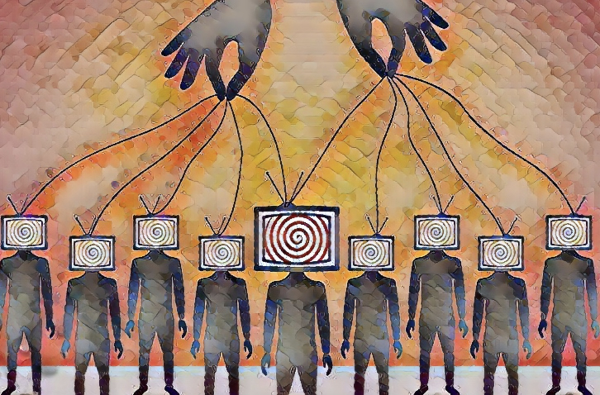Stage-managed mourning: How the fallen Awami regime exploited August 15 this year
-68a2d48e75090.jpeg)
At first glance, the tributes paid to Sheikh Mujibur Rahman on August 15 might have seemed like heartfelt acknowledgments of his role in Bangladesh’s independence.
But beneath the surface, the commemorations revealed something far more orchestrated: a campaign designed to sanitize history and shield the Awami League’s present-day crimes behind the sanctity of Mujib’s memory.
Yes, there were genuine expressions of respect. But many of the tributes came from a familiar circle of longtime allies of the Awami League, beneficiaries of its patronage networks, and opportunists from academia, culture, and business.
Some were simply paid. Others were drawn in by the Awami-controlled advertising industry.
Many more, cushioned by 16 years of party favoritism, posted effusive tributes as a way of insuring their corruption, impunity, and privilege against the uncertainty of Bangladesh’s post-Hasina order.
What united these posts was omission. They glorified Mujib in isolation, divorcing him from the brutal legacies invoked in his name. There was no recognition that Sheikh Mujib has been used as a shield for the Awami League’s repression.
No disclaimer that one could respect Mujib’s place in 1971 while rejecting the bloodshed, authoritarianism, and corruption committed under his banner for nearly two decades.
Most tellingly, the tributes erased the darker side of Mujib’s own rule between 1972 and 1975. His leadership did not carry the dream of the Liberation War into democracy but into the shadows of authoritarianism.
The creation of the Rakkhi Bahini institutionalized terror–abductions, disappearances, torture, and killings that claimed nearly 40,000 lives, including freedom fighters themselves.
Political opponents, dissenters, and even ordinary citizens were crushed under this machinery of fear.
Then came the famine of 1974, a catastrophe born out of catastrophic mismanagement and callousness. International researchers estimate that 1.5 million people died, even as Mujib’s government was busy consolidating power, silencing dissent, and enabling plunder.
The dream of a “Golden Bengal” collapsed into hunger and desperation.
By 1975, the explosion of public anger was inevitable. It was the accumulation of years of betrayal and the terror of the Rakkhi Bahini, and the corruption and authoritarianism that hollowed out the very ideals of liberation. Yet none of this found space in this year’s mourning.

Well orchestrated campaign
One fact rarely acknowledged in the Awami League’s official narrative of August 15 is that most of the assassins of Sheikh Mujibur Rahman were themselves freedom fighters of 1971.
This does not excuse the crime. I condemn the massacre unequivocally; such violence cannot be justified. But history demands honesty: the men who turned their guns on Mujib were the very men who once risked their lives to free the nation.
Their disillusionment was forged in the brutality of the Rakkhi Bahini, in the starvation of the 1974 famine, and in the suffocating one-party rule that crushed the democratic promise of the Liberation War.
Among the principal assassins–Syed Faruque Rahman, Khandaker Abdur Rashid, Mohiuddin Ahmed, Bazlul Huda, A.K.M. Mohiuddin Ahmed, Sultan Shahriar Rashid Khan, Shariful Haque Dalim, and Noor Chowdhury–most were decorated freedom fighters.
They insisted that their act was to “save the nation,” though whether it was patriotism or ambition remains contested in the historical record.
This history, however, was nowhere to be found in this year’s or any year’s mournings. Instead, the Awami League orchestrated a carefully engineered psychological campaign to dominate the narrative of August 15 this after the fall of their decade long autocratic ruling.
According to preliminary intelligence assessments, the plan took shape on the eve of mourning. On August 14, senior party leaders convened with influential figures, including a YouTuber notorious for intimidating critics into promoting the Awami League during the July uprising.
Soon after, a close confidant of Sheikh Hasina–a U.S.-based media figure with sway in the entertainment industry–was assigned to design the operation.
The strategy was strikingly calculated: enlist celebrities not publicly identified with the Awami League to post tributes, thereby creating confusion and encouraging a domino effect across cultural circles.
In the early hours of August 15, familiar loyalists–Tarin, Tomalika, Saju Khadem, Aruna Biswas, and Shamima Tusti–seeded the first wave of posts.
The campaign then leaned on a major film actor, whose post served as “central validation.” Though reportedly reluctant, he was pressured into compliance, aided by his personal ties to the party insider directing the campaign from abroad.
Meanwhile, the YouTuber coordinated the ground-level machinery, mobilizing networks and offering tactical instructions. What emerged was a textbook influence operation. The Awami League’s intent was to fuse grief with propaganda, leveraging cultural figures as unwitting amplifiers of state power.
The aftermath made this clear. Celebrities were rewarded with sudden elevation, their tributes paraded as proof of national consensus. The campaign even began with the most unlikely of figures: Zaher Alvi, an F-grade actor better known for sexually suggestive YouTube skits than for patriotism.
Just days before August 15, he warned followers to “unfriend” anyone deemed anti–Liberation War. On the day itself, he dutifully posted a tribute. In the Awami League’s new propaganda economy, even mediocrity became useful currency.

Propaganda machinery at full swing
The campaign’s next phase revealed just how tightly choreographed it was.
Soon after the August 15 tributes, Prothom Alo ran a sprawling feature on Zaher Alvi. Now the question is: Why glorify him–an F grade actor no one bothers about?
The answer was obvious: it was his reward. A journalist on Prothom Alo’s entertainment desk, closely linked to the Hasina confidant directing this influence operation, arranged the coverage.
The same journalist doubles as the unofficial PR manager of the country’s top film star, administering his Facebook page for a salary, while his wife, a singer, dutifully joined the mourning chorus.
The coordination was seamless. Even Kalabela followed suit, ensuring Alvi’s sudden elevation would not be a one-off.
Behind the curtain, other names surfaced–among them, a notorious advertising-world fixer educated at Delhi University and Jawaharlal Nehru University. Whether his role marks the first step in an attempt to rehabilitate those complicit in the July massacre remains to be seen.
At the very least, these connections warrant a thorough investigation. But that inquiry must be scrupulous–no one should be harassed without cause, and facts must outweigh vendettas.
The pattern, however, is unmistakable. After Mujib’s tributes, the strategy is shifting: gradually coax celebrities into overt endorsements of the Awami League. Already, whispers suggest that Imtu Ratish, a C-grade celebrity, will be among the first to publicly break the silence.
The calculation however was clear: with Ayana-Ghor gone and the Yunus government avoiding extrajudicial repression, artists sensed less immediate risk in aligning themselves with the fallen regime.
Equally telling is the orchestrated reaction online. Every tribute, however minor, is met with a flood of thousands of likes, shares, and comments–an echo chamber built by paid fugitives and digital mercenaries tasked with manufacturing consensus.
Some users post over a hundred times a day, their goal was drowning the public in noise until falsehood feels like memory.
And the intended outcome is chillingly clear. Even as the interim government struggles with its own faults, and even as Bangladesh today is indisputably stronger by every indicator than under the Awami League’s rule, the narrative being planted is the opposite: that things were better before, that the Awami League was preferable.
It is the manufacturing of nostalgia–an authoritarian afterlife built on psychological illusion.

Political implications
The political opportunism playing out in Dhaka today would be comical if its stakes were not so deadly serious.
On one side, NCP and Jamaat supporters devote their energies almost exclusively to deriding the BNP. Their borrowed lines–“10 percent,” “Khamba”--are not even original, but hand-me-down propaganda crafted in a neighboring country’s embassy and later refined by the Awami League.
On the other side, the Chhatra Dal has chosen to parrot the Awami League’s own playbook, targeting Jamaat-Shibir with recycled rhetoric of the Chhatra League.
The result is fragmentation at a time when unity is essential. Instead of exposing the Awami League’s 16 years of authoritarianism, vote theft, and violent repression, Bangladesh’s opposition forces are caught in petty feuds.
Instead of confronting the horrors of July–when Hasina’s security forces carried out what can only be described as a genocide–too many so-called “masterminds” limit themselves to shallow chants of “Bury Mujibism.”
It is little wonder that ordinary citizens are beginning to tune them out.
This political myopia is a dangerous erasure. The fraudulent elections engineered by the Awami League have all but disappeared from the national conversation. The brutal repression unleashed on opposition leaders, activists, and ordinary citizens is being quietly forgotten.
And the July massacre, which should stand as the darkest warning of where autocracy can lead, risks being washed away by infighting and noise.
The stakes could not be higher. Students–both in public and private universities–who led the resistance in July now face the possibility that their struggle may be undermined by propaganda and disunity.
The general public, too, must recognize what is at risk: if the Awami League is permitted to return to power without apology or accountability, Bangladesh’s sovereignty itself will be at stake.
A new Rakkhi Bahini would emerge, crippling the army and unleashing another cycle of massacre and repression.
The lesson of July is stark: complacency invites catastrophe. The patriotic public must remain united, not distracted by borrowed slogans or shallow rivalries.
Bangladesh’s people must make a collective vow never to allow the return of the butchers who carried out the July genocide. Anything less would dishonor the sacrifices of those who stood against tyranny, and leave the country once again at the mercy of its most dangerous enemies.
—

